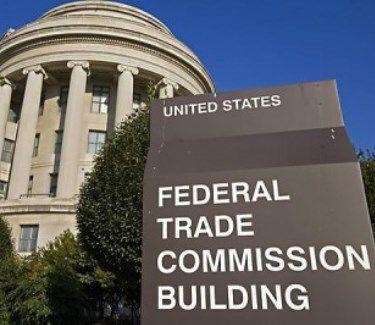Source: www.insideradio.com, October 2023
The audio industry may be just beginning to see the promise and problems associated with artificial intelligence. But as the technology improves and becomes more widespread, there is a growing call from content creators for some regulation. During a Federal Trade Commission roundtable, representatives from across a spectrum of industries said they see the need for AI rules governing creators’ consent, control, and compensation of their human-created works.
“Without the intervention of the FTC, AI and synthetic voice clones will place our members at an unfair competitive disadvantage and decimate our profession,” said Tim Friedlander, President of the National Association of Voice Actors. “It’s difficult enough to compete against other humans, now voice actors have to compete against digital clones of themselves and against multimillion and billion-dollar tech companies.”
Friedlander said he is not “anti AI” and because it is easy for AI to capture the voice of an actor and then use that sample to create completely new works, it has already opened new opportunities. But Friedlander said it also having negative consequences, such as a voice actor who was told by an advertiser that they would not be needed since the client planned to create a synthetic version of their voice for the ads that they had produced in the three prior years.
“Every time that happens without the consent, control and compensation of the voice actor involved, the value of that voice actor’s product, the sound of their voice, is diluted and unfairly diminished,” Friedlander said.
Duncan Crabtree-Ireland, National Executive Director of SAG-AFTRA, agreed that generative AI poses a threat to the livelihood of its members. But like Friedlander, he says that AI also has great potential for creators, if their intellectual property rights are protected. “The key is that the company using AI technology must be required to get the informed consent of any individuals whose voice, likeness performance, persona or intellectual property is being used to generate content, and companies need to compensate these individuals fairly,” he said.
Kahn Sees FTC Authority
The FTC was created more than a century ago to address things like railroad monopolies. But Chair Lina Kahn thinks its malleable authority to address the newest technology as it applies antitrust laws gives the FTC a potential role in AI regulation.
“We want to make sure the market understands that there’s no AI exemption to the laws on the books,” Kahn said. “It’s extraordinarily important to not assume that there’s some inevitable end point about how these technologies will be used, but instead recognize that the laws and policies against which these new tools are introduced will significantly shape who benefits and who is harmed.”
Kahn said that AI is a fast-moving technology, and while everyone is waiting to see what the full impact of generative AI will be, she thinks there is little doubt the technology could transform how society lives, works, and communicates. “It’s clear that it is going to be absolutely essential for enforcers and regulators to be keeping pace,” Kahn said.
‘The Danger Is Real’
Under Kahn, the FTC has taken a more activist role, such as targeting the noncompete clauses that are commonplace in radio. When it comes to AI, its commissioners provided no clues if similar rulemaking was close at hand during the 90-minute roundtable.
“I’m profoundly worried about fraud and AI use,” said FTC Commissioner Alvaro Bedoya. “We need to remember that the only place genius comes from is people, is humans. And any effort to persuade the world otherwise will fail.”
If the FTC does decide to pass some rules targeting AI’s use, voice actor Friedlander thinks it has a solid consumer protection foundation from which to build.
“The ability to create a synthetic voice from anyone who has pre-recorded audio is easy, simple and dangerous,” Friedlander said. “It only takes three seconds of source audio to create a realistic voice clone, and this synthetic content can be used to deceive consumers into believing that a trusted voice is communicating with them. This can lead to relying on false and misleading information and potentially even implicate the human whose voice has been used to harm people.”
Some political candidates have already begun to use AI-generated voices in their campaign spots and critics warn it could be even more common in the upcoming election cycle. There have also been reports of people receiving telephone scams using an AI-generated voice, such as one that targets parents with faked screams of their supposedly kidnapped children by people who demand ransom payments.
“The danger to consumers is real,” Friedlander said. “It is tangible. And it is here now.”

